第62章
But for your son, believe it--oh, believe it--Most dangerously you have with him prevailed, If not most mortal to him. CORIOLANUS.
On the evening which preceded his proposed departure, Hamish walked down to the river with his fishing-rod, to practise in the Awe, for the last time, a sport in which he excelled, and to find, at the same time, the means for making one social meal with his mother on something better than their ordinary cheer. He was as successful as usual, and soon killed a fine salmon. On his return homeward an incident befell him, which he afterwards related as ominous, though probably his heated imagination, joined to the universal turn of his countrymen for the marvellous, exaggerated into superstitious importance some very ordinary and accidental circumstance.
In the path which he pursued homeward, he was surprised to observe a person, who, like himself, was dressed and armed after the old Highland fashion. The first idea that struck him was, that the passenger belonged to his own corps, who, levied by government, and bearing arms under royal authority, were not amenable for breach of the statutes against the use of the Highland garb or weapons. But he was struck on perceiving, as he mended his pace to make up to his supposed comrade, meaning to request his company for the next day's journey, that the stranger wore a white cockade, the fatal badge which was proscribed in the Highlands. The stature of the man was tall, and there was something shadowy in the outline, which added to his size; and his mode of motion, which rather resembled gliding than walking, impressed Hamish with superstitious fears concerning the character of the being which thus passed before him in the twilight. He no longer strove to make up to the stranger, but contented himself with keeping him in view, under the superstition common to the Highlanders, that you ought neither to intrude yourself on such supernatural apparitions as you may witness, nor avoid their presence, but leave it to themselves to withhold or extend their communication, as their power may permit, or the purpose of their commission require.
Upon an elevated knoll by the side of the road, just where the pathway turned down to Elspat's hut, the stranger made a pause, and seemed to await Hamish's coming up. Hamish, on his part, seeing it was necessary he should pass the object of his suspicion, mustered up his courage, and approached the spot where the stranger had placed himself; who first pointed to Elspat's hut, and made, with arm and head, a gesture prohibiting Hamish to approach it, then stretched his hand to the road which led to the southward, with a motion which seemed to enjoin his instant departure in that direction. In a moment afterwards the plaided form was gone--Hamish did not exactly say vanished, because there were rocks and stunted trees enough to have concealed him; but it was his own opinion that he had seen the spirit of MacTavish Mhor, warning him to commence his instant journey to Dunbarton, without waiting till morning, or again visiting his mother's hut.
In fact, so many accidents might arise to delay his journey, especially where there were many ferries, that it became his settled purpose, though he could not depart without bidding his mother adieu, that he neither could nor would abide longer than for that object; and that the first glimpse of next day's sun should see him many miles advanced towards Dunbarton. He descended the path, therefore, and entering the cottage, he communicated, in a hasty and troubled voice, which indicated mental agitation, his determination to take his instant departure. Somewhat to his surprise, Elspat appeared not to combat his purpose, but she urged him to take some refreshment ere he left her for ever. He did so hastily, and in silence, thinking on the approaching separation, and scarce yet believing it would take place without a final struggle with his mother's fondness. To his surprise, she filled the quaigh with liquor for his parting cup.
"Go," she said, "my son, since such is thy settled purpose; but first stand once more on thy mother's hearth, the flame on which will be extinguished long ere thy foot shall again be placed there."
"To your health, mother!" said Hamish; "and may we meet again in happiness, in spite of your ominous words."
"It were better not to part," said his mother, watching him as he quaffed the liquor, of which he would have held it ominous to have left a drop.
"And now," she said, muttering the words to herself, "go--if thou canst go."
"Mother," said Hamish, as he replaced on the table the empty quaigh, "thy drink is pleasant to the taste, but it takes away the strength which it ought to give."
"Such is its first effect, my son," replied Elspat. "But lie down upon that soft heather couch, shut your eyes but for a moment, and, in the sleep of an hour, you shall have more refreshment than in the ordinary repose of three whole nights, could they be blended into one."
"Mother," said Hamish, upon whose brain the potion was now taking rapid effect, "give me my bonnet--I must kiss you and begone--yet it seems as if my feet were nailed to the floor."
"Indeed," said his mother, "you will be instantly well, if you will sit down for half an hour--but half an hour. It is eight hours to dawn, and dawn were time enough for your father's son to begin such a journey."
"I must obey you, mother--I feel I must," said Hamish inarticulately; "but call me when the moon rises."